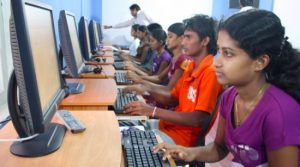Will Increased Digital Security Affect Development Interventions Online?
Today’s evolving digital landscape has helped change the scope of development and the vast range and number of people who can be reached through interventions based on digital platforms. Yet there are still several issues of security that can arise like cybercrime. In Bangladesh, a new draft for the Digital Security Act has raised questions concerning broad and vague definitions that may hamper efforts using digital platforms to raise awareness or for educational purposes.
On 1 October 2016, the civil society organisation, Moulik Odhikar Shurokkha Committee (Committee for the Protection of Fundamental Rights) organised a roundtable discussion on the proposed bill. Dr Tahmina Rahman from Article 19 discussed the controversial sections of this law, saying that with more use of digital media and the increasing volume of cyber traffic, it is important for us to have regulations. She also noted that it is however very important to bear in mind that the law should not violate our fundamental right to freedom of speech. She also raised concerns over particular definitions used to describe the offences against the law.
Dr Rahman expressed concerns that some parts of the law are so vague that it may be hard to implement or conduct proceedings on these sections. She particularly addressed the section regarding pornographic content where the definition of pornography and the use of images for sexual health content in education are not separated. This suggests that educational material can also be deemed as pornography under this new law.
Such laws can have a major implication on organisations and institutions like JPGPSH who work in areas of sexual, reproductive health rights (SRHR) education. For instance, JPGSPH is currently partnered with Unite for Body Rights, which implements the Comprehensive Sexuality Education (CSE) project to raise sexual health-related awareness; if they adapted their strategy to provide CSE online, would these new laws affect their methods of communication? Would the content become pornographic under these new Without clear definitions it will become difficult to address certain topics related to SRHR and place limitations on critical content for those who the health programmes are created for. Thus there is a greater need for research and generation of evidence before drafting such a law.


